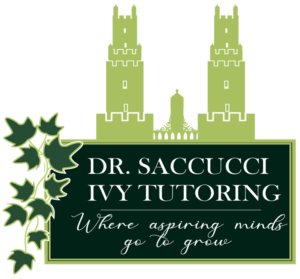Medical School Interviews in Ontario
By Dr. Saccucci, Hons. B.A., B.Education, Masters, J.D. (USA), J.D. (CAN), Ph.D. (University of Toronto)

Medical School interviews in Ontario are fast approaching, that is, in February and March, 2021. Those medical school candidates who are chosen for an interview are indeed, la crème de la crème in terms of education, marks, accomplishments and community service. However, over achievers are often extremely hard on themselves, and this fact adds to the stress level of interviewing. Clearly, the most effective way of assuaging stress is preparation.
Here at Doctors on Call – Tutoring and Test Taking Practice, we introduce our students to a list of questions they may very well be asked, and we critique their answers. Our critique is a two-fold test: attitude and intelligence. Questions posed by the Medical School Admission officers are designed to discern character and knowledge. For instance, consider the following question: “Have you considered another profession with healthcare other than medicine, and if so, why did you choose medicine?” This question is a perfect opportunity to underscore one’s humility and respect for all professions within healthcare, regardless of hierarchy. A positive answer would be as follows: “Yes, I considered going into nursing because I have the highest regard for nurses as they are on the frontlines of medicine. Nurses have a great deal of one-on-one interaction with patients, and therefore, they often know more about a patient’s entire story than a doctor would. If I were accepted into Medical School, and became a doctor, I would view nurses as an integral part of the team of medical professionals.” This response highlights a student’s humility and knowledge about the medical system. In contrast, a negative answer would be as follows: “No, I haven’t considered any other career in healthcare because I don’t want to settle for less in life.” This response may appear innocuous, but actually, it is quite denigrating to nurses, technicians and other healthcare professionals.
On a different note, many of our students have been stumped by the question: “What uncertainty have you faced in your life, and how did you handle it?” Those students who have not experienced instability, challenge, tragedy or uncertainty in their lives often feel they have to fabricate something. Nothing could be further from the truth. Never lie to Medical School officials. Simply be honest and straightforward. A positive answer would be, “I’ve been fortunate enough not to face any uncertainty in my life; however, this doesn’t mean I can’t empathize with those who have. If I were accepted into Medical School, and became a doctor, I would reach out to those less fortunate than I because practising medicine is a privilege, and the best way to honour that is to help those who need it the most.” This response is honest, and interviewers will appreciate this much more than a hyperbolic, syrupy and fabricated answer. I recall one student who answered that he experienced the Civil War in Syria, but when I asked him where he was born and raised, he responded, “Canada.” It does not take a rocket scientist to discern that this student was lying, and if he were to do so during an interview, he would be rejected.
Students should expect some rendition of the question, “What experience do you have which demonstrates your respect for diversity, equity and inclusion?” This question has engendered far many cliché answers. When anyone is inundated with cliché answers, he or she stops listening. On the other hand, interviewers are impressed with original and creative responses which are imprinted on their minds. For instance, one may respond, “My favourite literary character is Atticus Finch, who advised his daughter, Scout that “you can never understand a person until you consider his point of view…until you climb in his skin and walk around in it.” If I became a doctor, I would model myself on Atticus Finch and treat my patients the same way Atticus treated his African clients, with respect, fairness, inclusion and justice. I think this lawyer is a great role model for aspiring physicians because he exemplifies the qualities of respect for diversity, equity and inclusion.” Now, clearly, this response creates a powerful impression and image which the interviewer will attach to the medical school candidate. If it comes down to, two equally qualified individuals, but one gave creative and original responses, while the other gave stale, prefabricated answers, the former would win the medical school seat.
In conclusion, these are just some of the questions and answers applicable to the upcoming medical school interviews in Ontario. For more information and for preparation sessions, please contact Doctors on Call at 519 564 1016 or visit us at www.saccuccitutoring.com.
